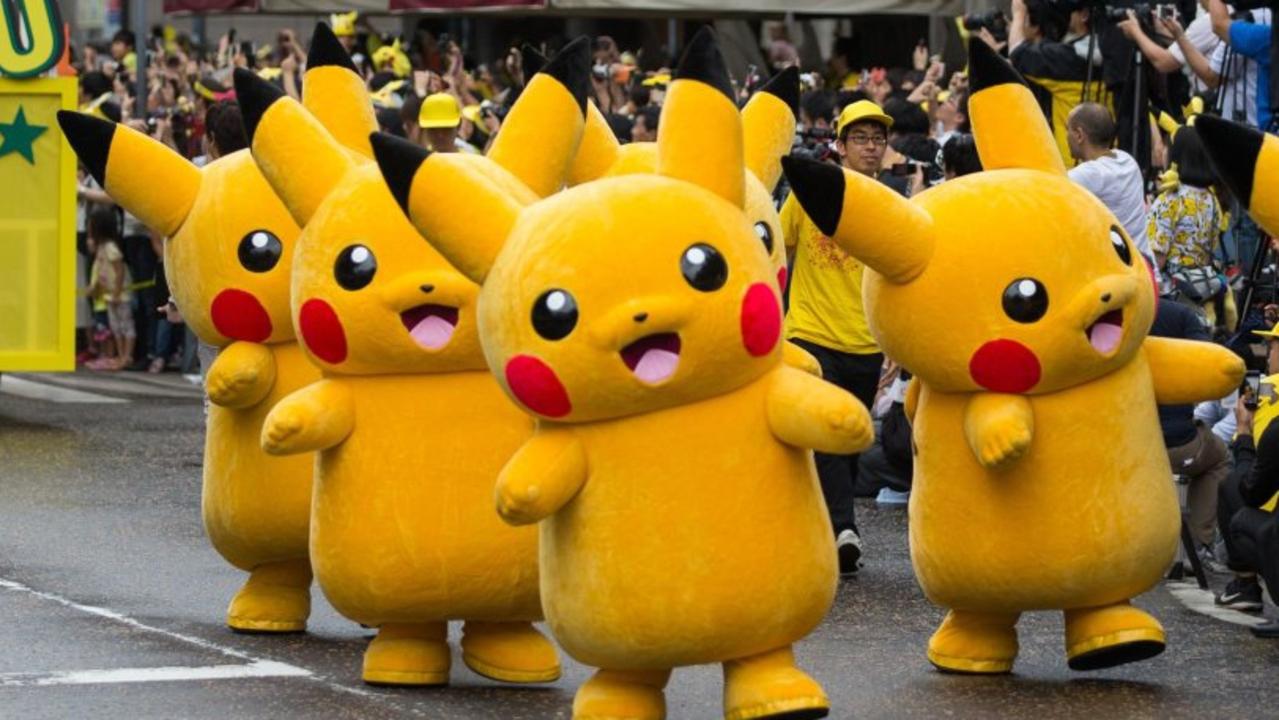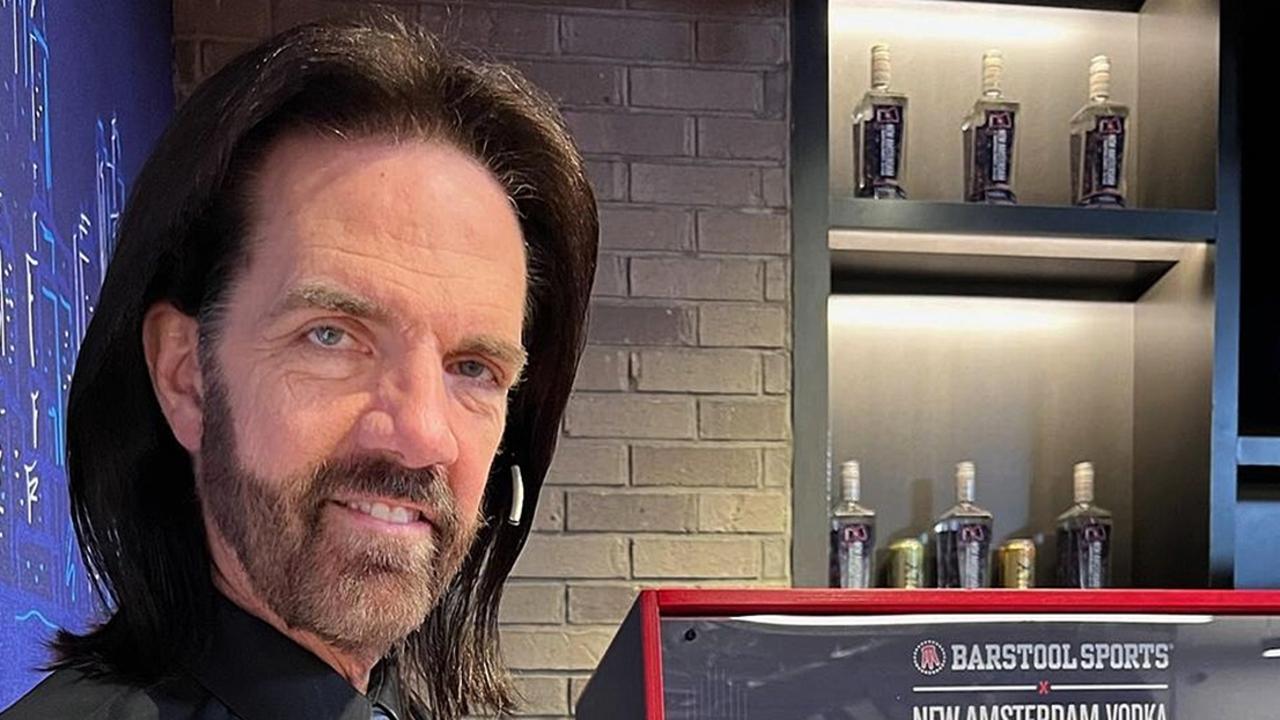Australian female game pioneers changing the industry
You’ve seen their work in Crossy Road, The Sims or Warhammer. Now meet five female game pioneers changing the industry.
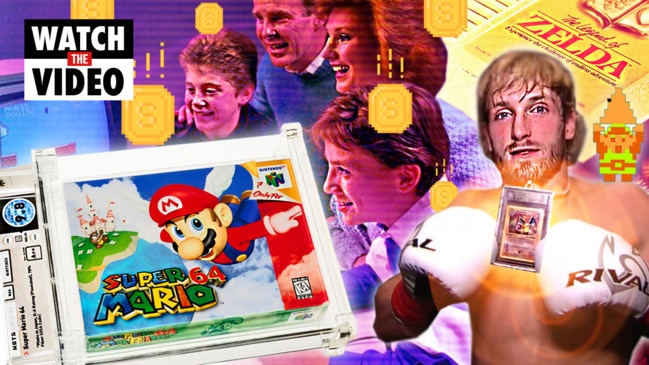
Gaming
Don't miss out on the headlines from Gaming. Followed categories will be added to My News.
It’s the world’s biggest entertainment business, eclipsing Hollywood, television and the music industry.
Video games attracted more than $240 billion in 2020, according to IDC, as more people grabbed a controller, downloaded a virtual adventure, or tapped on a new app during lockdowns.
But fewer than one in five Aussies making those games were female, according to an IGEA study, despite a huge pool of talent.
Industry experts say the gender gap is improving, albeit slowly, led by trailblazing women and studios willing to change the way they work, recruit, promote, and think.
These are five Australian women leading the charge to change the game: a player, producer, executive, advocate, and a studio owner ensuring everyone gets to play.
THE EXECUTIVE: Clara Reeves
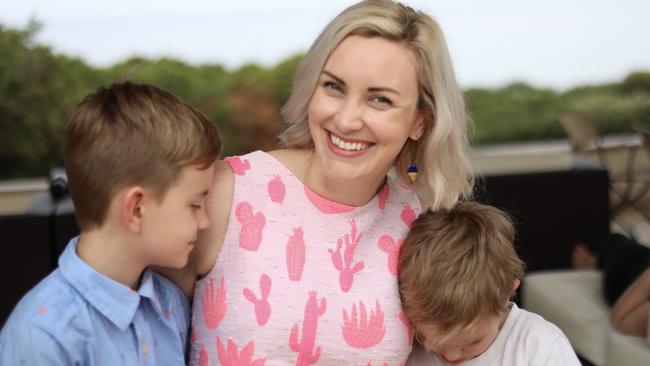
It’s one of the most successful and recognisable apps created in Australia and the woman behind it, Clara Reeves, is responsible for the idea for its latest outing.
Crossy Road boasts more than 500 million players worldwide, and the Hipster Whale chief executive’s idea to set a new chicken-crosses-the-road adventure inside a castle became one of Apple Arcade’s launch titles.
“Every now and then you do just step back and think, ‘hundreds of millions of players; half a billion, you say?’ Those sorts of numbers are a bit abstract and hard to think about,” she says.
But Ms Reeves, who has worked in the gaming industry for 16 years, says regularly being one of very few women in the room had been challenging, as had securing the right working balance after having children, and it shouldn’t be that way.
“When we look at the audience for games, we have parity,” she says.
“Women and men play games pretty equally.
“And obviously 50 per cent of the world’s population should probably have some say in what games are out there.”
Ms Reeves says the make-up of the industry was changing as more women rose into leadership positions, however, and there are “a heap of people on that path”.
Greater diversity behind the scenes will also lead to more fun in front of it for everyone, she says.
“Growing up with games I would get really into a title and something stupidly misogynistic would happen in it and in my mind I would just go ‘shush to that’,” she says.
“That doesn’t happen so much any more. That doesn’t fly so much any more.”
THE PRODUCER: Ally McLean
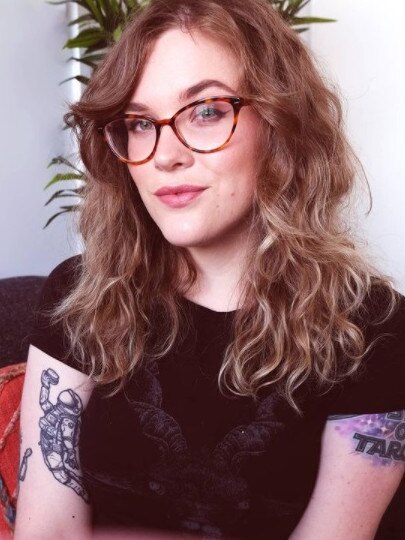
Sydney-based producer Ally McLean entered the video games industry in an unusual way: by dressing as game characters. Now she creates them.
The former professional cosplay artist has since worked for big and independent studios alike, helping bring to life a diverse mix of titles from Warhammer 40,000: Regicide and The Witcher 3 to the tale of a sentient vacuum cleaner in Rumu and Bring Back the Beat for Cochlear implant recipients.
Early on, Ms McLean says she “never saw anyone like me an executive position” in studios, but there’s evidence that’s changing, particularly over the last five years.
“At the moment I work at a studio where there are a lot of women in leadership positions and a very gender-diverse team,” she says of Adelaide-based Mighty Kingdom.
“Being there gives me a lot of hope. You see the future everyone was talking about and I feel like it’s very much real for me.”
Ms McLean says having a diverse mix of people behind the scenes gives games different characters and greater appeal, though it requires studios to take a chance on people from different industries, like television and visual special effects, and with different perspectives.
“In recent years we’ve seen a lot more female characters in games and some more nuanced representations of women in games,” she says.
“Games are still a really young industry as entertainment compared to film and we have a lot of learn from other spaces. If we’re just hiring people who have made games for the last 20 years that talent pool looks pretty homogenous.”
Her advice to aspiring game-makers? ”Make something and ship it” to an app store.
THE PRO PLAYER: Dhayana Sena
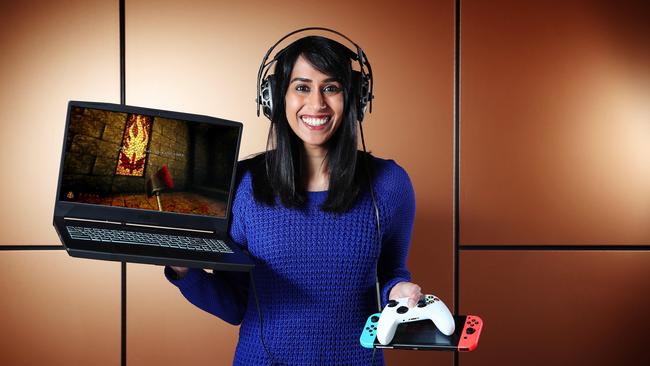
Melbourne-based gaming influencer Dhayana Sena, known online as Miss Deus Geek, has been playing, streaming and writing about video games since rediscovering her love for it six years ago.
But the avid Microsoft Xbox and Nintendo Switch player also discovered a passion for encouraging female players to pick up a controller after an awkward experience running an after-school course on game-streaming.
“There was this one moment where the parent came in with a son and daughter and asked her daughter ‘do you want to join your brother?’,” Ms Sena says. “She looked around and saw there were only boys and said ‘no’.
“It was at that moment that I realised that was really a problem because we don’t have enough representation of women and girls in games and they may not feel comfortable because it doesn’t feel like something they’re allowed to pursue.”
To address the imbalance, Ms Sena created the community group Women of Xbox, which she describes as a safe place for female players to talk about gaming.
Ms Sena has also been named the first Xbox MVP to represent Australia and New Zealand, recently became a global Women in Games ambassador, and is a finalist in the group’s awards to be held on September 18.
Ms Sena says she’s particularly passionate about encouraging women of colour to take part in the industry, and she’d like to see more girls told that making games can be “a viable career path”.
“The industry has definitely started to change, especially in the last decade,” she says. “Hopefully we’ll get to a point where we don’t feel so under-represented. And we can do everything the boys do.”
THE ADVOCATE: Lisy Kane
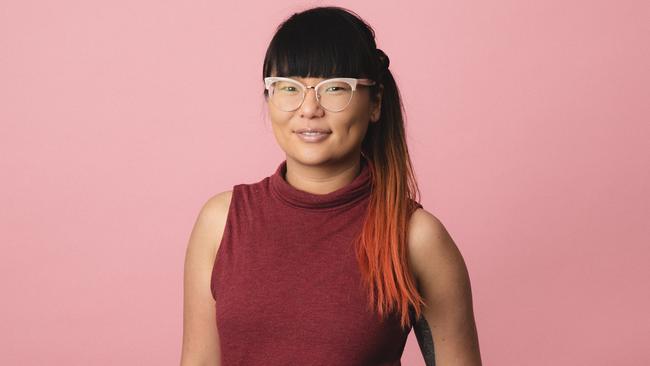
Lisy Kane was one of just two women studying Game Design at the Queensland University of Technology but it’s an experience she’s working to change.
The experienced game producer and public speaker co-founded Girl Geek Academy in 2014, with the goal of teaching one million women technology skills by 2025.
The group regularly hosts hackathons, Microsoft Mondays, Weekend Workshops and STEM-based school holiday courses for girls, and guided more than 40 women through a career incubator program to help them rise through the ranks.
Ms Kane says getting women involved in the industry — and encouraging them to stay in it — led to better games for everyone to play.
“Within the game industry, some dumb marketing person in the ‘80s decided that games were for boys and ever since then games have been considered for males,” she says.
“But we’re seeing a huge shift in games being made now. We’re seeing more women making video games with diverse stories, and a great swell in the term ‘cosy games’ — games like Stardew Valley and Animal Crossing that are not just for women but for everyone.”
Ms Kane, who works in game development with Melbourne’s League of Geeks and was the only Aussie named on Forbes’ 30 Under 30 Games list in 2017, says she hopes men can get involved in the change too.
“We need to talk to the male founders and studio owners and work with them to understand the influence they have,” she says. “Teach them how to manage up and mentor their folks.”
THE STUDIO OWNER: Amanda Schofield
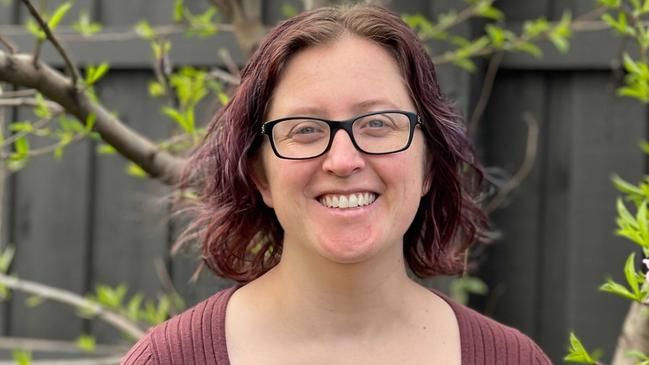
Next time you see The Sims on a smartphone, you can say a silent ‘thank you’ to Amanda Schofield.
The Melbourne developer convinced Firemonkeys EA that the well-known title would make a great app at just the right time.
“We had this beautiful nest egg — access to The Sims right when mobile was really taking off,” she says. “I pulled the general manager aside and said, ‘I think we could do so much more with this’.”
The Sims FreePlay is still going strong today but Ms Schofield now heads her own games outfit, Studio Drydock, and says she’s eager to give more women the opportunity to have their creative ideas heard.
The Melbourne firm employs 23 people, mostly women, and all work remotely — a decision made to attract the best applicants worldwide and give them the most flexibility.
“You need everyone to do 38 hours but do them when they make sense of them,” she says. “Some people are taking the nightshift to support their partners, some mums need the afternoon free to take care of the kids. They’re contributing as much as anyone else.”
Ms Schofield says she hopes new working arrangements will help “stop us losing all these fabulous people around the five to seven-year mark,” and seeing more women in leadership roles within the industry could show there is “room” for more.
“The more incredible warrior women who are holding the door for other types of women who are not as able to show that strength, the more of us at the top there will be,” she says.
More Coverage
Originally published as Australian female game pioneers changing the industry



